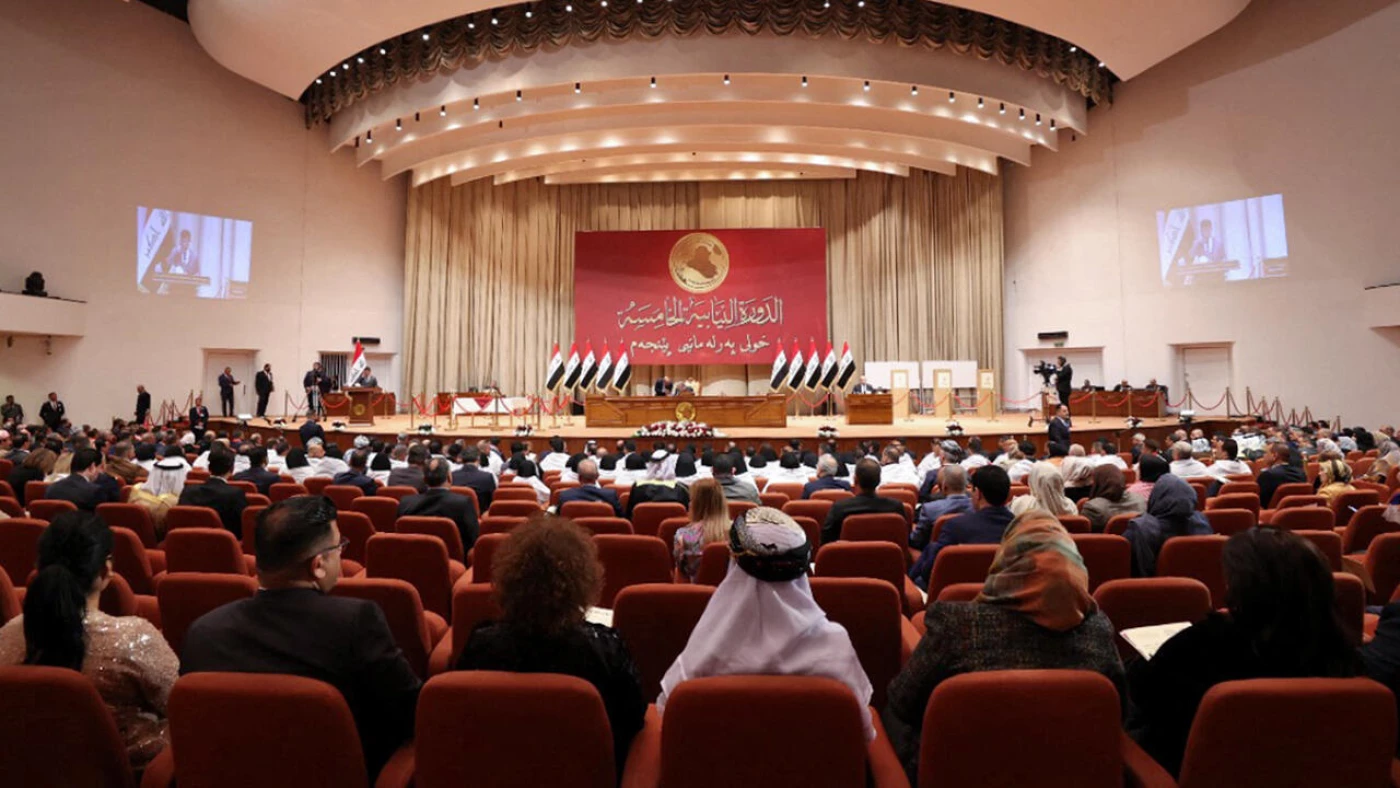ERBIL, Kurdistan Region of Iraq - Iraq’s current parliamentary cycle, the fifth since the fall of Saddam Hussein’s regime, has faced a turbulent tenure marked by political crises, legislative gridlock, and renewed calls for early dissolution. From its inception following the early elections of October 2021, the parliament has struggled to navigate a divided political landscape.
The October 10, 2021, elections saw unexpected gains for civil movements and a dominant performance by the Sadrist Movement, which secured 73 seats. Conversely, many established Shiite factions, now part of the Coordination Framework, suffered significant losses. Disputes over the results delayed certification by nearly two months, with the parliament holding its first session on January 9, 2022, three months after the elections.
The parliament’s first year was marred by a deep political crisis that nearly collapsed Iraq’s political system. Muqtada al-Sadr, leader of then-Sadrist Movement, pushed for a “tripartite coalition” to form a majority government, excluding the Coordination Framework, but called on all his 73 MPs to resign in June after his efforts were repeatedly blocked by the Shiite coalition.
Tensions climaxed in August 2022 with violent clashes in Baghdad’s Green Zone between Sadr’s loyalists and Coordination Framework supporters. Following the unrest, Sadr announced his withdrawal from politics, setting the stage for the Coordination Framework to form the government without him.
It took a full year after the elections for a government to be formed, with Mohammed Shia’ al-Sudani appointed as prime minister in October 2022.
Despite nearing its final year, the parliament faces mounting calls for dissolution. State of Law Coalition MP Mohammed al-Ziadi announced plans to gather signatures after the legislative recess ends on January 9, 2025, to dissolve the parliament and hold early elections. Ziadi cited the body’s inability to address key issues, including the passage of contentious laws, as a primary reason for the proposal.
The parliament is currently in its month-long recess, which ends January 9, 2025. While legislative recesses are scheduled for January-February and July-August, this session was repeatedly extended to address unresolved legislation, including the budget.
Under the parliamentary bylaws, lawmakers are required to convene at least eight sessions per month during the 32-month legislative period. However, the parliament has fallen short, holding only 131 sessions over three legislative years, 68 percent of the required minimum.
The New Region conducted a review of parliamentary activity under three speakers, Mohammed al-Halbousi, Muhsin al-Mandalawi, and Mahmoud al-Mashhadani.
Spanning 23 months from January 2022 to November 2023, Halbousi oversaw 80 sessions during his tenure - 27 in the first year and 53 in the second - averaging 3.4 sessions per month.
Mandalawi chaired 43 sessions during his time as acting speaker between November 2023 and October 2024, averaging 3.5 sessions monthly.
The latest speaker, Mashhadani, has presided over six sessions since his appointment on October 31, with four sessions failing to pass legislation amid ongoing disputes.



 Facebook
Facebook
 LinkedIn
LinkedIn
 Telegram
Telegram
 X
X


